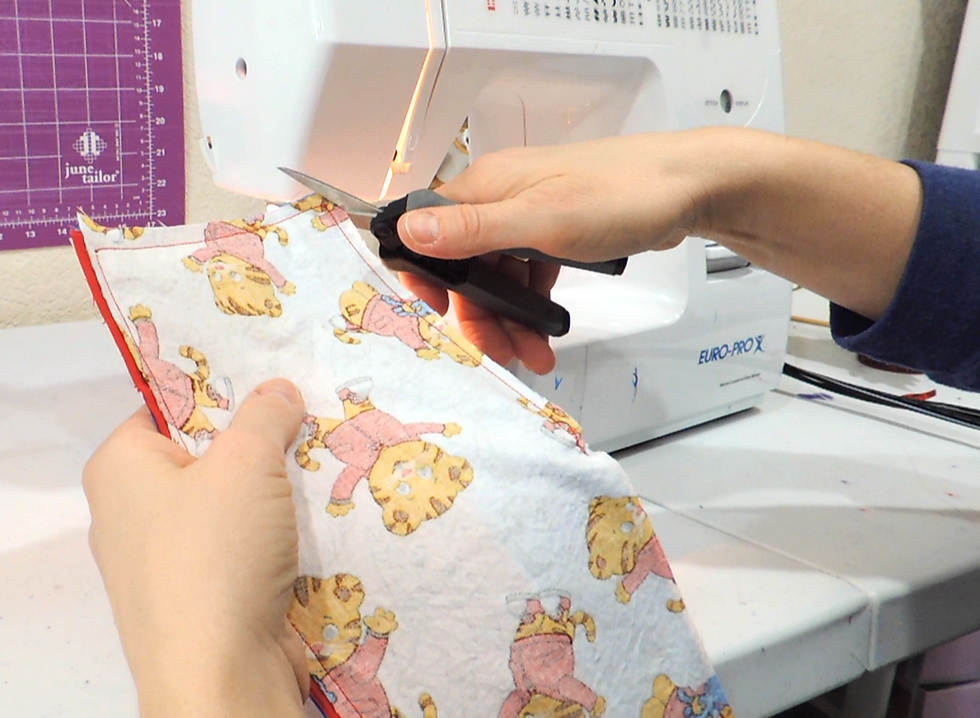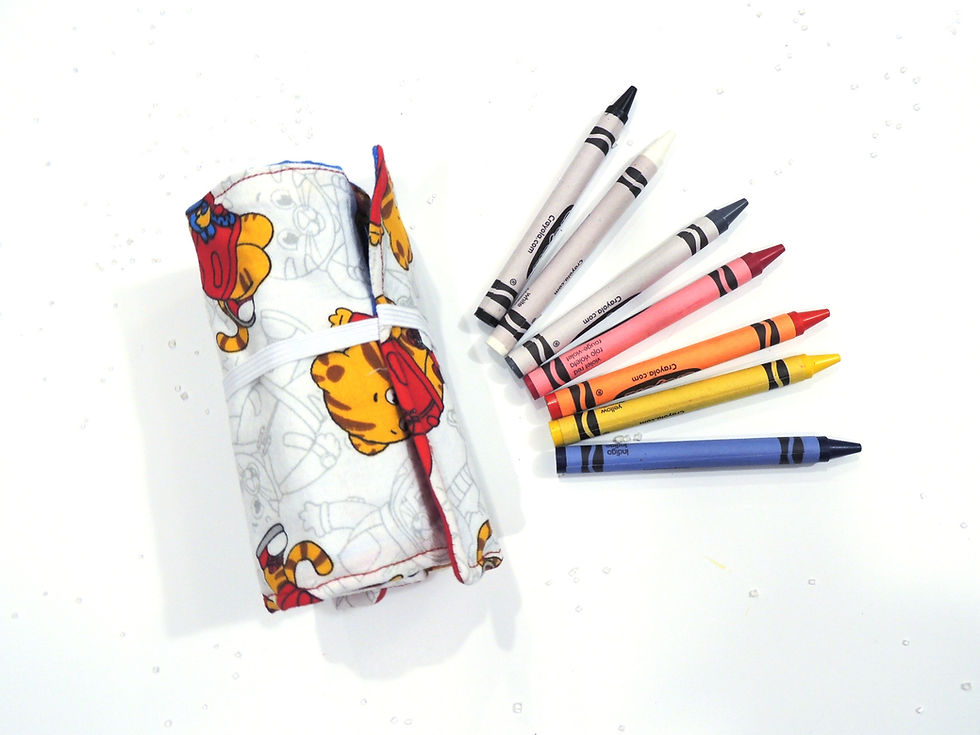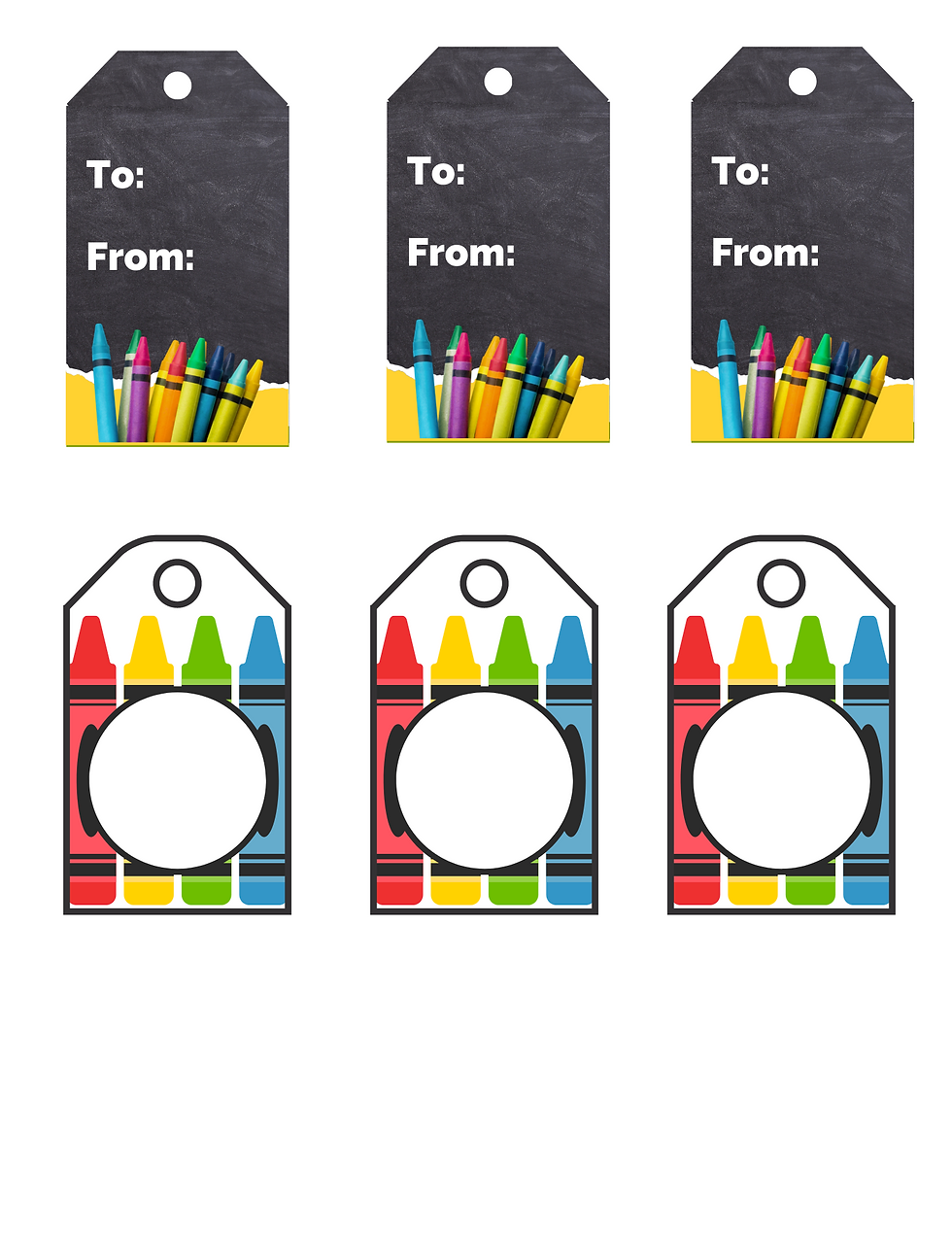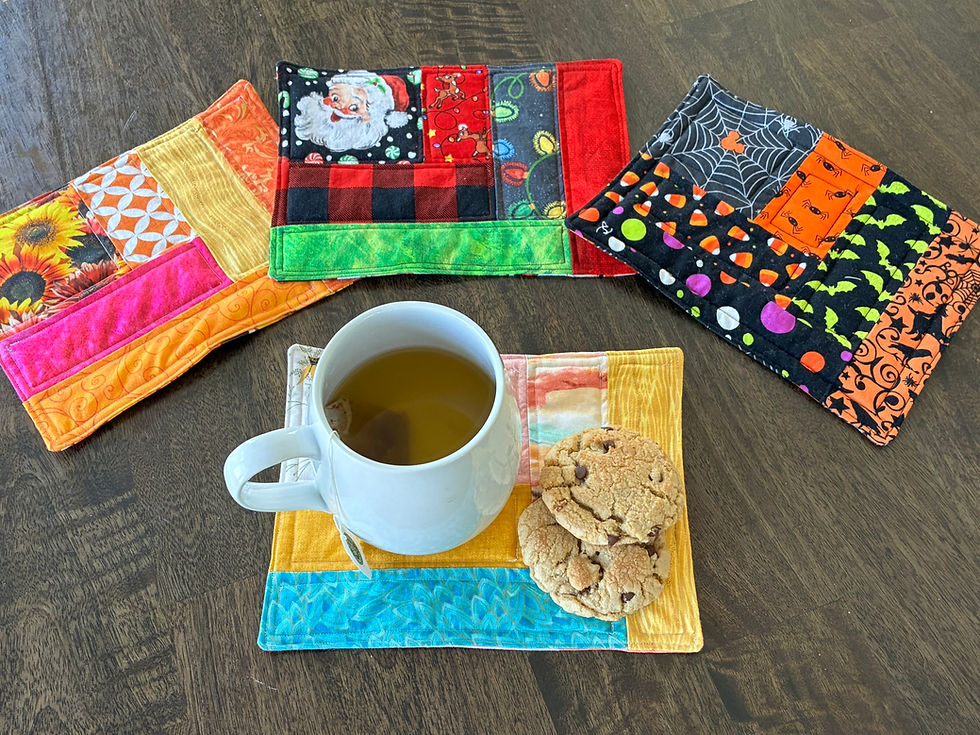Sew a roll up travel crayon holder so kids can take creativity on the road
- Nichole Jensen
- Jul 3, 2022
- 5 min read
Updated: Jun 26, 2023

Obviously I love crafts and giving the gift of crafting is the best idea ever. I made a few of these awesome crayon holders for my kids when they were young, and they used them A LOT and kept using them for years. It's a crayon roll that holds a whole row of those waxy sticks and unrolling it is an invitation to dive right into a coloring session. These things are perfect for waiting rooms, in the car, at church, at restaurants or anywhere you need something to keep a child happy and quiet. I used the basic dimensions of my roll from here - How to Make a Crayon Roll Crayon Holder EASY Instructions (skiptomylou.org) but tweaked it up a bit to suit my needs.
Watch the video here:
Supplies to sew a travel crayon holder:

*This post may contain affiliate links, which means I get a commission if you decide to make a purchase through my links, at no extra cost to you.*
Supplies make a roll up crayon holder:
1 – 5 x 16 ½ inch piece of cotton fabric for the outside
1 – 5 x 16 ½ inch piece of cotton fabric for the inside
1 – 6 x 16 ½ inch piece of cotton fabric for the inside pocket. This could be the same as either the inside or the outside fabric but let's be honest – for kids, usually the more colors the better so I almost always use a third print
1 – 5 x 16 ½ inch piece of interfacing – it doesn't have to be iron-on/fusible but it makes the project just a tiny bit easier.
1 - 3 3/4" piece of ¼ inch elastic
optionally - sewing clips
Sewing machine
iron and ironing board
Let's get started:

If your interfacing is fusible now is the time to iron it onto the back of the piece of fabric you are using for the inside of the roll. Place the shiny side of the interfacing against the back of the fabric and iron on using the interface instructions. If using non-fusible, skip this step and move ahead one space.

Take the 5 x 16 ½ inch designated for the pocket, fold it in half along the long edge with the right sides of the fabric (the pretty side) facing out and iron it.

Now you are going to line up the folded piece to the bottom edge of the inside piece of fabric with the opening at the bottom. So the folded area should be in the middle of the fabric you want to be the inside of the roll. Pin these two pieces (along with the interfacing which may or may not be ironed on) together at the corners.

Place a pin 1 ¼ inch in from the left edge of the two fabrics. Then, place other pins every inch going to the right. You should be able to put in 15 pins and after the 15th pin there should be 1 ¼ inch left over on the right side.

The next step is one that helps me but is not strictly necessary. I go back and place a pin at the bottom of the fabrics in a straight line down from the pins I just put in. Since the next step is to sew a line from the top of the pocket to the bottom, I find having a visual goal very helpful in my attempts to stitch a straight line. Previous lazy efforts to skip this step ended with drunken diagonal lines. Not pretty. Do you need them - no. But leave them off at your own risk. Or, hey, maybe you have mad straight sewing skills. You do you. Whatever you decide, now it's time to sew those straight lines through all four layers of fabric (the interfacing, the inside fabric and the folded over piece of pocket fabric).

Once you have all 15 of the lines stitched on, spend about a week clipping off all the strings dangling from your fabric. Once that task is out of the way you can fold the elastic piece in half and pin it at about the middle of the right edge of your sewn inside/pocket piece with the loop laying to the inside.

Place the outside piece of fabric on top of the inside piece with the right sides together (the pretty sides should be facing each other) and pin around the edges. The elastic should be hidden on between your two pieces of fabric.
Mark off a 2 to 3-inch section at the bottom of the project to leave unsewn in this next step. I like to place a pin in my fabric vertically to remind myself to stop there – otherwise I mindlessly continue on and sew it completely closed, thus requiring the use of the dreaded seam ripper.

Sew around the entire project with a ¼ inch seam – except for the 2 to 3-inch area you have marked off. Once you have sewn it all the way around, clip off the excess fabric in the corners but do not cut the stitch line. This reduces the bulk in the corners allowing them to lay flatter.

Now you can flip that bad boy right side out and marvel at how awesome it already looks. Push all the edges and the corners out so they look all cornery. I like to use this wooden stick thingy I got in a bag of Poly-fil but an unsharpened pencil or chop stick will work too.

Next, fold the raw edges of the fabric in your unsewn section to the inside of the project and press/iron in place so that it looks like the rest of that finished edge. While you're at it, iron all the edges so the fabric is laying nicely.
The last step is to use a ¼ inch stitch to close the opening and continue around the entire edge of the project to hold everything together. Clip those final strings and you're done!

Now for the fun part – putting in the crayons themselves. Since it holds 16 I buy a box of at least 24 and put in all the ones I think they are more likely to use and hang on to the remaining ones.
If you're thinking ahead you can grab crayons really cheap when the back-to-school sales are on and have boxes all ready to go when you need them. Does anyone else just looove the smell of a fresh box of pointy crayons? No, just me? Pair your crayon roll with a coloring book or coloring pages like the ones below, and voila, the perfect gift for most any child!

Happy Crafting!
.png)






Great idea! I’m going to make these for my grandkids 😀